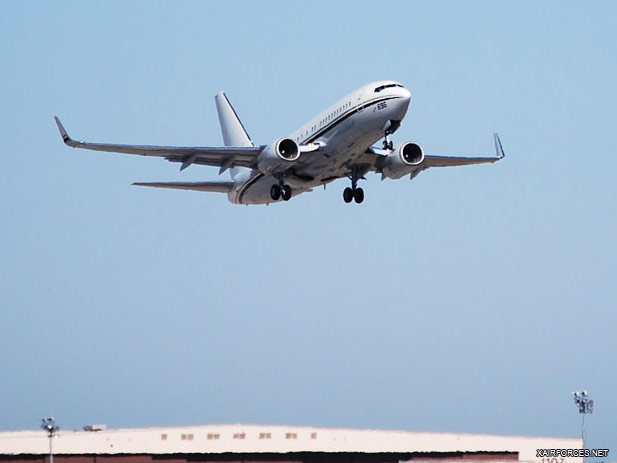
Boeing Announces Phase-Out of Wichita Defense Operations

Citing defense spending cuts and declining prospects for new business, Boeing said on January 4 that it will close its military modifications and maintenance operations in Wichita by the end of 2013, dealing another blow to a city reeling from the downturn in business aircraft manufacturing.
The Boeing Wichita facility currently employs 2,160 people and is the base for the company’s Global Transport and Executive Systems business and B-52 and 767 International Tanker programs. It was envisioned as the site where Boeing 767s flown from Everett, Wash., would be converted into U.S. Air Force KC-46A refueling tankers under a contract awarded last February and potentially worth $35 billion for 179 tankers.
The tanker conversions now will stay at Boeing facilities in the Puget Sound region of Washington state. Future aircraft maintenance, modification and support work will take place in San Antonio, and engineering work in Oklahoma City, Boeing said.
“In this time of defense budget reductions, as well as shifting customer priorities, Boeing has decided to close its operations in Wichita to reduce costs, increase efficiencies and drive competitiveness,” said Mark Bass, vice president and general manager of the Boeing Defense, Space and Security maintenance, modifications and upgrades division.
The phase-out of Boeing’s defense operations in Wichita ends a presence dating back to 1929. In addition to B-52 and 767 tanker work, the facility provides heavy maintenance of Air Force One, the 747-200B used to transport the President. Boeing recently delivered the 12th C-40A transport, a 737-700 derivative modified in Wichita, to the U.S. Navy.
Boeing sold its commercial division in the city, now Spirit AeroSystems, in 2005. Kansas officials decried Boeing’s decision as a betrayal of its commitment to the state and promised work on the KC-46A.
“As I have said repeatedly, Boeing, like every company, has the right to change its business plans and operate in the best interests of its stakeholders,” said U.S. Rep. Mike Pompeo (R-Kan). “What neither Boeing, nor any other company, has the right to do is make false statements, violate long-held commitments to communities or to receive federal contracts based on representations that it knows are not accurate.”
Source: by Bill Carey, 06 January 2011 - AIN Defense Perspective (www.ainonline.com)
Photo: A U.S. Navy C-40A transport, a Boeing 737-700 derivative modified in Wichita, departs Kansas for its home base at Naval Air Station North Island, California. (Photo: Boeing)
(6.01.2012)
|